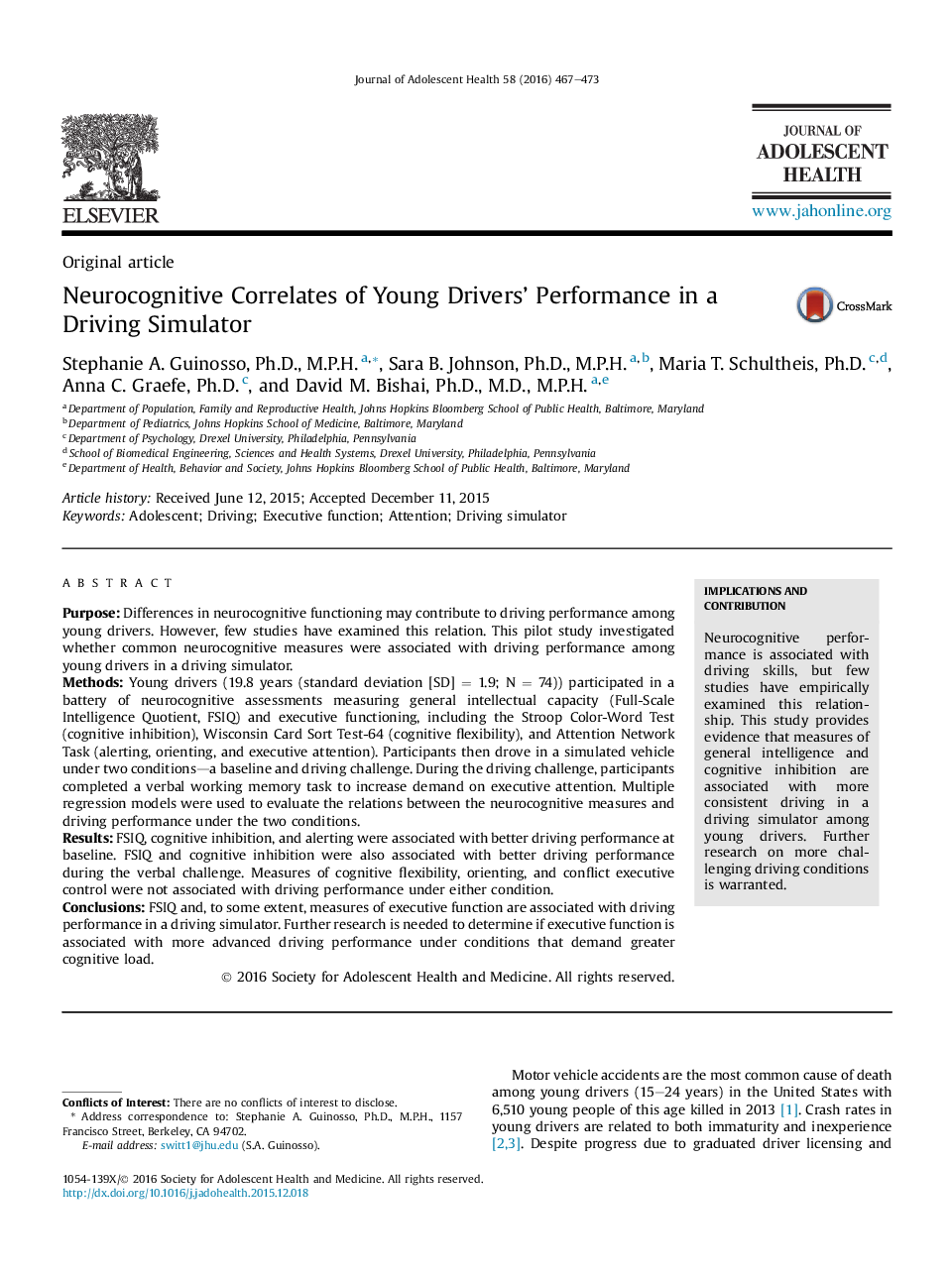| کد مقاله | کد نشریه | سال انتشار | مقاله انگلیسی | نسخه تمام متن |
|---|---|---|---|---|
| 1078205 | 950437 | 2016 | 7 صفحه PDF | دانلود رایگان |
PurposeDifferences in neurocognitive functioning may contribute to driving performance among young drivers. However, few studies have examined this relation. This pilot study investigated whether common neurocognitive measures were associated with driving performance among young drivers in a driving simulator.MethodsYoung drivers (19.8 years (standard deviation [SD] = 1.9; N = 74)) participated in a battery of neurocognitive assessments measuring general intellectual capacity (Full-Scale Intelligence Quotient, FSIQ) and executive functioning, including the Stroop Color-Word Test (cognitive inhibition), Wisconsin Card Sort Test-64 (cognitive flexibility), and Attention Network Task (alerting, orienting, and executive attention). Participants then drove in a simulated vehicle under two conditions—a baseline and driving challenge. During the driving challenge, participants completed a verbal working memory task to increase demand on executive attention. Multiple regression models were used to evaluate the relations between the neurocognitive measures and driving performance under the two conditions.ResultsFSIQ, cognitive inhibition, and alerting were associated with better driving performance at baseline. FSIQ and cognitive inhibition were also associated with better driving performance during the verbal challenge. Measures of cognitive flexibility, orienting, and conflict executive control were not associated with driving performance under either condition.ConclusionsFSIQ and, to some extent, measures of executive function are associated with driving performance in a driving simulator. Further research is needed to determine if executive function is associated with more advanced driving performance under conditions that demand greater cognitive load.
Journal: Journal of Adolescent Health - Volume 58, Issue 4, April 2016, Pages 467–473
